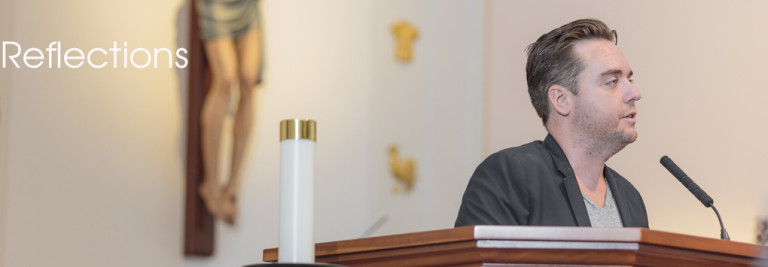Happy Easter! Yes, it is still Easter! Oftentimes, we are so concerned with Lent and its important forty days of fasting that we forget the whole point of all that atoning is to prepare for the victory of resurrection. Easter lasts fifty days, that’s longer than Lent, but somehow we forget or just can’t rejoice as easily as we mourn. This isn’t personal criticism; I’m speaking to the Church as a whole!
I get it, I understand that our sorrow is buried in very real struggles (heartbreak, economic concerns, etc.). Just turning on the news on a gray morning can make it feel like Good Friday all over again. Rejoicing is tough to qualify, often because it isn’t until we are looking back that we realize that was a “night to remember.” The birth of children, academic accomplishments, and wedding anniversaries are easily remembered (I hope so!), but those times of rejoicing or truly joyous times are often best seen in hindsight. Likewise, this weekend’s Gospel reading is often overlooked.
Christ is forgiving Peter for his denial and tasking him with a pretty hefty responsibility. We are so focused on Peter’s transgression (probably because it reminds us of our own) that we forget the only difference between Peter’s sin and Judas’ was that Peter accepted Christ’s forgiveness. I truly feel in my heart that the God of Mercy we celebrate today also forgave Judas, regardless of what tradition recalls. I know that Judas—if not in life, in death—was offered the warming embrace of the Savior he betrayed. Now, whether Judas accepted that mercy is another story, and that denial of God’s love probably led to his despair. That’s difficult stuff. Indeed, how can you forgive someone who doesn’t feel they are worthy of forgiveness? Which makes Peter’s penance all the more meaningful.
“Feed my sheep,” Jesus repeats to Peter. Forgiving and accepting mercy is a task. A meaningful act of course, but an act nonetheless. What good is it to have God’s mercy if we don’t make it a conscience task of making sure we feel it? I guess what I’m saying is that it takes work to smile, it takes work for us to realize we aren’t dirty, or wrong, but that we are loved. So, Lent is over, but the work isn’t. Our task of mercy doesn’t end. We feed others this mercy to remind us of our past struggles and to maybe crack a smile and realize how far we’ve come. Happy Easter! (Again.)
I’ll be seeing you,
Elliot



